Academic Plagiarism: The Role of Integrity in Business & Finance
VerifiedAdded on 2023/06/17
|6
|1356
|156
Essay
AI Summary
This essay provides a comprehensive overview of academic plagiarism, defining it as the deliberate misrepresentation of another's work as one's own. It delves into various types of plagiarism, including straight plagiarism, simple plagiarism, and self-plagiarism, highlighting the internet's role in exacerbating the issue. The essay emphasizes the significance of academic integrity in fostering professionalism within a business environment, arguing that integrity builds trust and enhances the value of an individual's degree. Furthermore, it outlines practical strategies for avoiding plagiarism and improving academic writing, such as using quotation marks, paraphrasing accurately, and proper referencing. The conclusion reinforces the importance of academic integrity and plagiarism awareness in both academic and professional contexts, noting the internet's dual role in facilitating and detecting plagiarism.
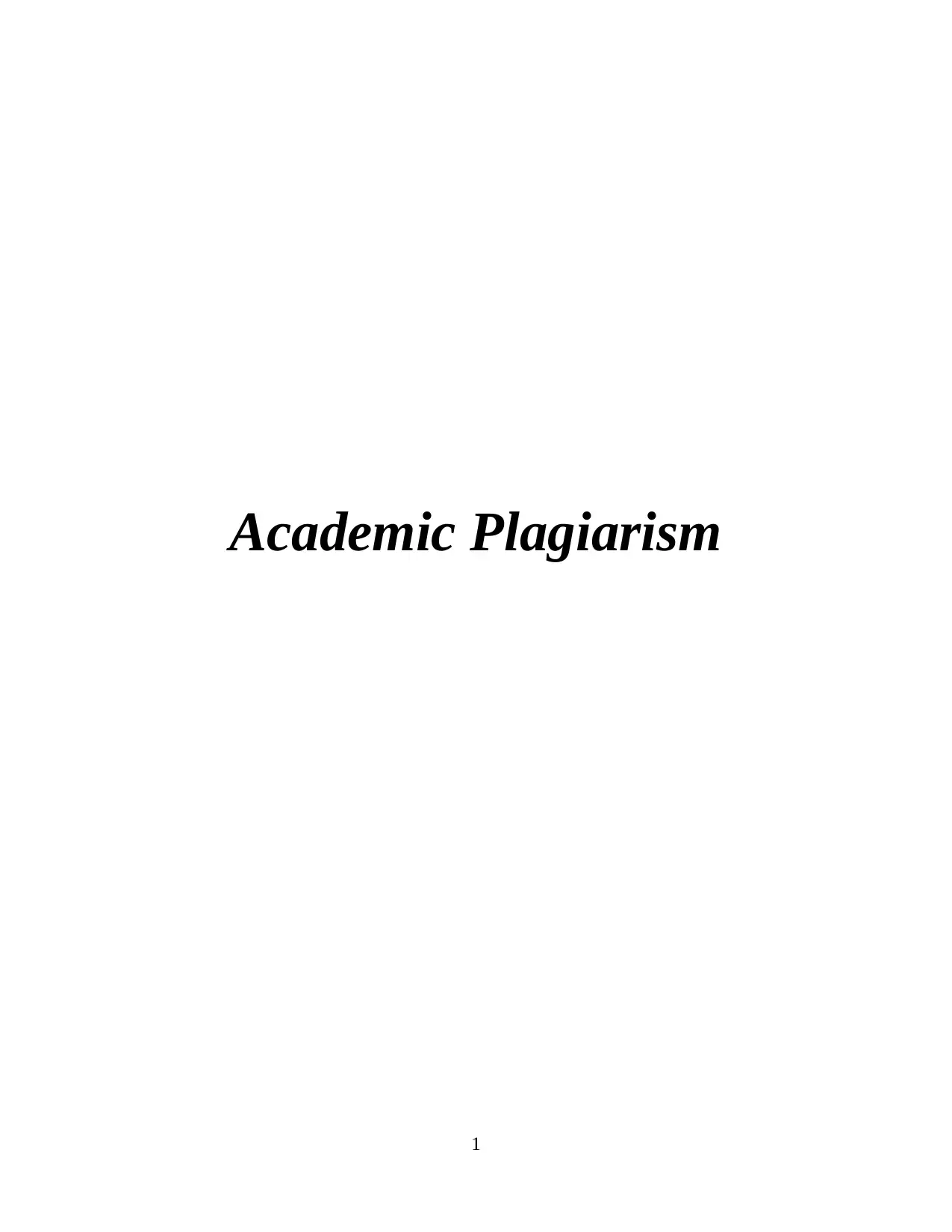
Academic Plagiarism
1
1
Paraphrase This Document
Need a fresh take? Get an instant paraphrase of this document with our AI Paraphraser
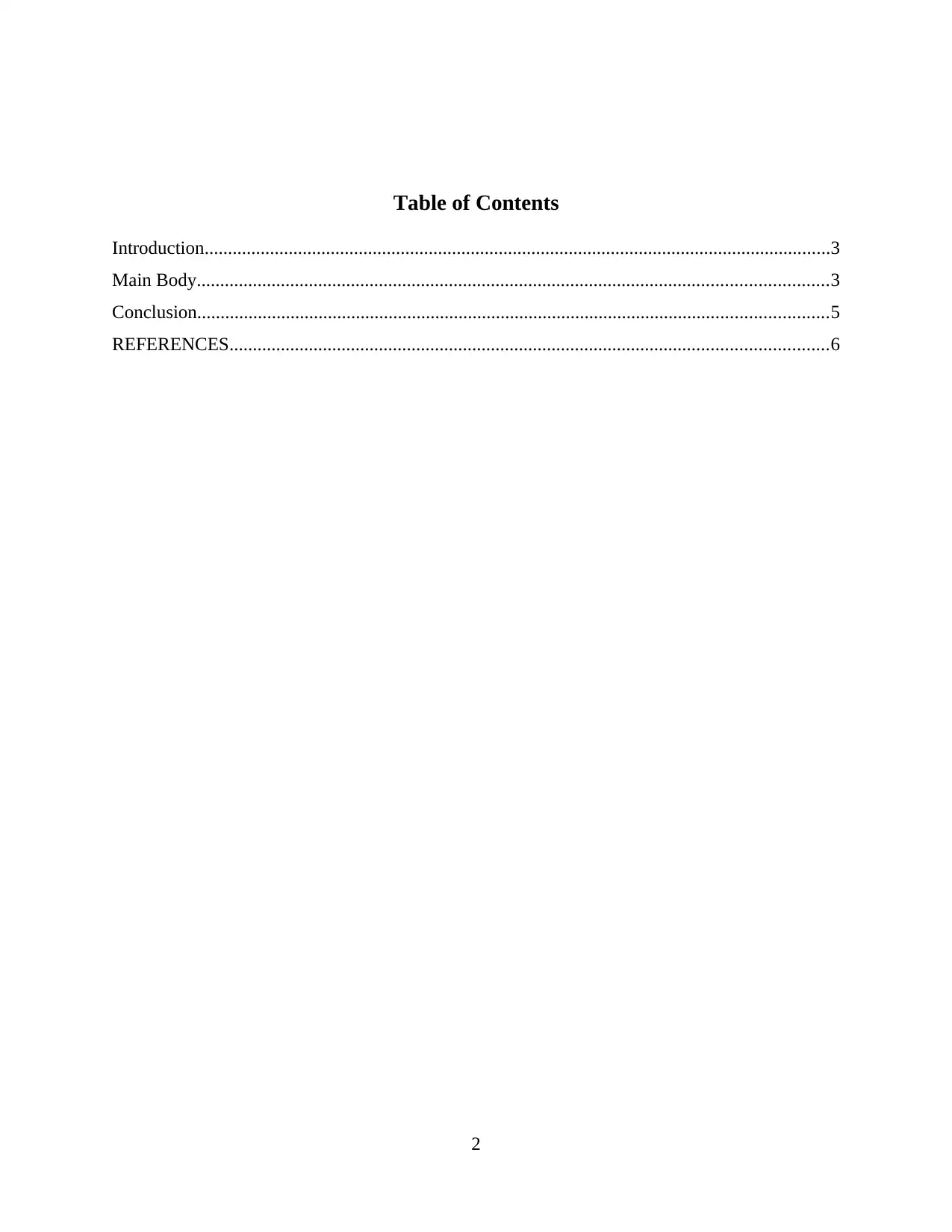
Table of Contents
Introduction......................................................................................................................................3
Main Body.......................................................................................................................................3
Conclusion.......................................................................................................................................5
REFERENCES................................................................................................................................6
2
Introduction......................................................................................................................................3
Main Body.......................................................................................................................................3
Conclusion.......................................................................................................................................5
REFERENCES................................................................................................................................6
2
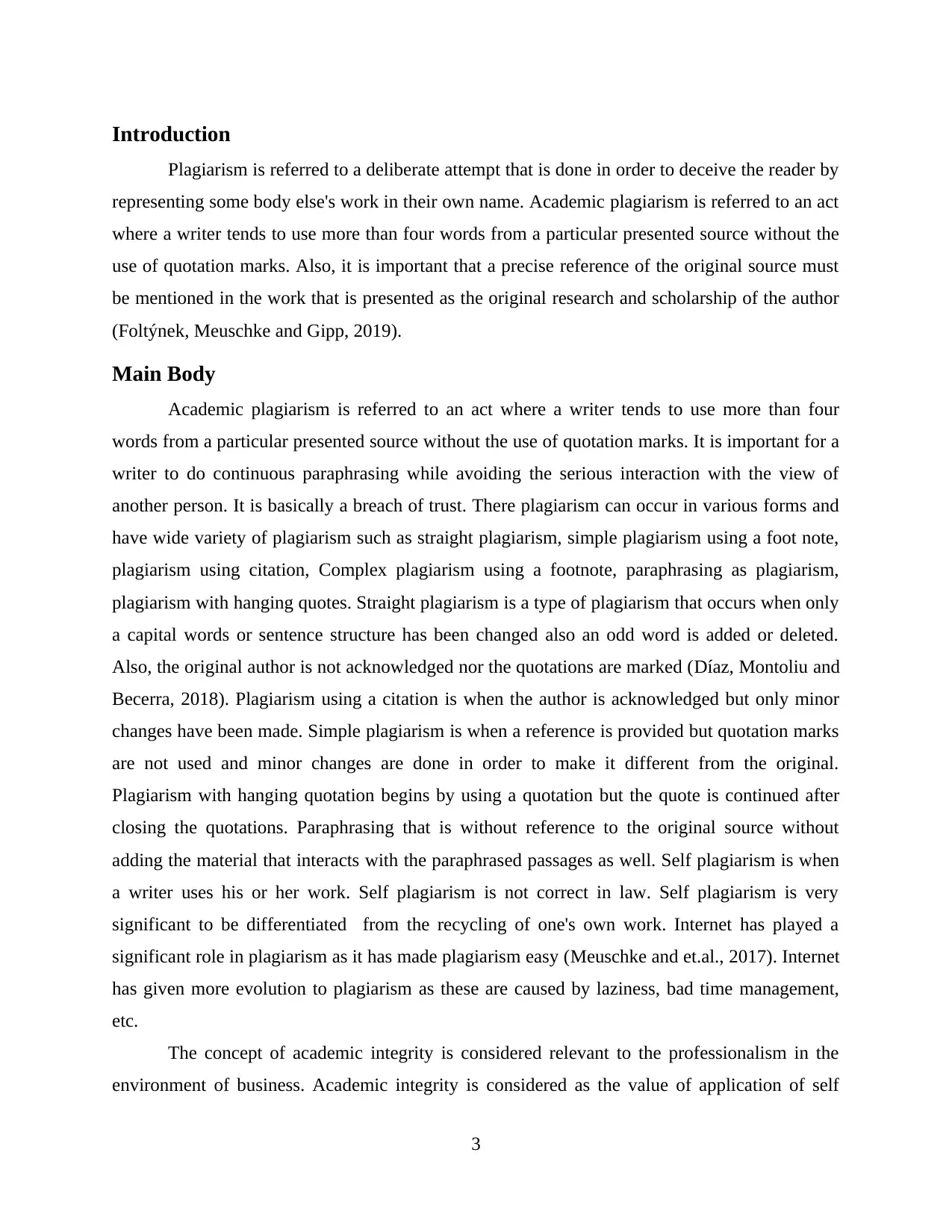
Introduction
Plagiarism is referred to a deliberate attempt that is done in order to deceive the reader by
representing some body else's work in their own name. Academic plagiarism is referred to an act
where a writer tends to use more than four words from a particular presented source without the
use of quotation marks. Also, it is important that a precise reference of the original source must
be mentioned in the work that is presented as the original research and scholarship of the author
(Foltýnek, Meuschke and Gipp, 2019).
Main Body
Academic plagiarism is referred to an act where a writer tends to use more than four
words from a particular presented source without the use of quotation marks. It is important for a
writer to do continuous paraphrasing while avoiding the serious interaction with the view of
another person. It is basically a breach of trust. There plagiarism can occur in various forms and
have wide variety of plagiarism such as straight plagiarism, simple plagiarism using a foot note,
plagiarism using citation, Complex plagiarism using a footnote, paraphrasing as plagiarism,
plagiarism with hanging quotes. Straight plagiarism is a type of plagiarism that occurs when only
a capital words or sentence structure has been changed also an odd word is added or deleted.
Also, the original author is not acknowledged nor the quotations are marked (Díaz, Montoliu and
Becerra, 2018). Plagiarism using a citation is when the author is acknowledged but only minor
changes have been made. Simple plagiarism is when a reference is provided but quotation marks
are not used and minor changes are done in order to make it different from the original.
Plagiarism with hanging quotation begins by using a quotation but the quote is continued after
closing the quotations. Paraphrasing that is without reference to the original source without
adding the material that interacts with the paraphrased passages as well. Self plagiarism is when
a writer uses his or her work. Self plagiarism is not correct in law. Self plagiarism is very
significant to be differentiated from the recycling of one's own work. Internet has played a
significant role in plagiarism as it has made plagiarism easy (Meuschke and et.al., 2017). Internet
has given more evolution to plagiarism as these are caused by laziness, bad time management,
etc.
The concept of academic integrity is considered relevant to the professionalism in the
environment of business. Academic integrity is considered as the value of application of self
3
Plagiarism is referred to a deliberate attempt that is done in order to deceive the reader by
representing some body else's work in their own name. Academic plagiarism is referred to an act
where a writer tends to use more than four words from a particular presented source without the
use of quotation marks. Also, it is important that a precise reference of the original source must
be mentioned in the work that is presented as the original research and scholarship of the author
(Foltýnek, Meuschke and Gipp, 2019).
Main Body
Academic plagiarism is referred to an act where a writer tends to use more than four
words from a particular presented source without the use of quotation marks. It is important for a
writer to do continuous paraphrasing while avoiding the serious interaction with the view of
another person. It is basically a breach of trust. There plagiarism can occur in various forms and
have wide variety of plagiarism such as straight plagiarism, simple plagiarism using a foot note,
plagiarism using citation, Complex plagiarism using a footnote, paraphrasing as plagiarism,
plagiarism with hanging quotes. Straight plagiarism is a type of plagiarism that occurs when only
a capital words or sentence structure has been changed also an odd word is added or deleted.
Also, the original author is not acknowledged nor the quotations are marked (Díaz, Montoliu and
Becerra, 2018). Plagiarism using a citation is when the author is acknowledged but only minor
changes have been made. Simple plagiarism is when a reference is provided but quotation marks
are not used and minor changes are done in order to make it different from the original.
Plagiarism with hanging quotation begins by using a quotation but the quote is continued after
closing the quotations. Paraphrasing that is without reference to the original source without
adding the material that interacts with the paraphrased passages as well. Self plagiarism is when
a writer uses his or her work. Self plagiarism is not correct in law. Self plagiarism is very
significant to be differentiated from the recycling of one's own work. Internet has played a
significant role in plagiarism as it has made plagiarism easy (Meuschke and et.al., 2017). Internet
has given more evolution to plagiarism as these are caused by laziness, bad time management,
etc.
The concept of academic integrity is considered relevant to the professionalism in the
environment of business. Academic integrity is considered as the value of application of self
3
⊘ This is a preview!⊘
Do you want full access?
Subscribe today to unlock all pages.

Trusted by 1+ million students worldwide
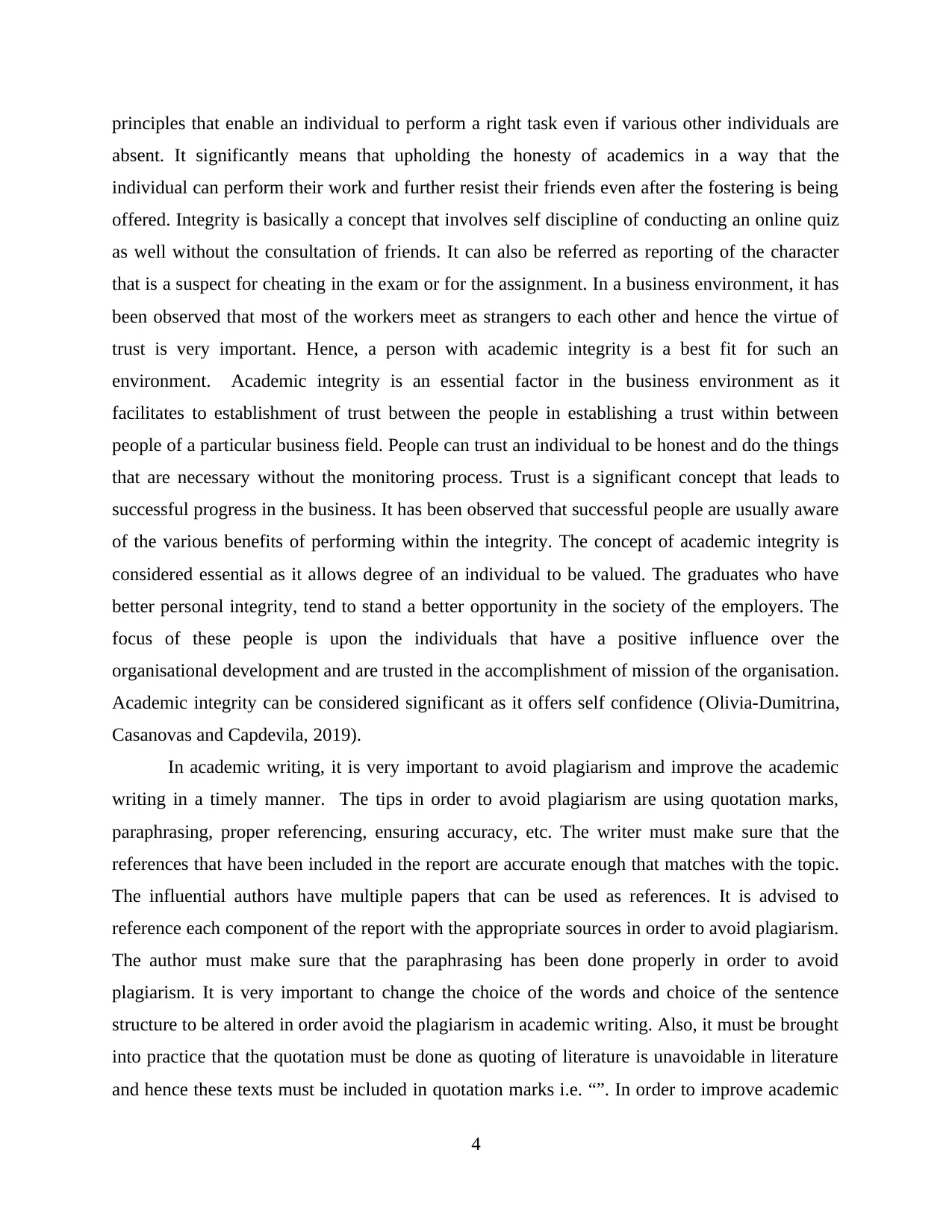
principles that enable an individual to perform a right task even if various other individuals are
absent. It significantly means that upholding the honesty of academics in a way that the
individual can perform their work and further resist their friends even after the fostering is being
offered. Integrity is basically a concept that involves self discipline of conducting an online quiz
as well without the consultation of friends. It can also be referred as reporting of the character
that is a suspect for cheating in the exam or for the assignment. In a business environment, it has
been observed that most of the workers meet as strangers to each other and hence the virtue of
trust is very important. Hence, a person with academic integrity is a best fit for such an
environment. Academic integrity is an essential factor in the business environment as it
facilitates to establishment of trust between the people in establishing a trust within between
people of a particular business field. People can trust an individual to be honest and do the things
that are necessary without the monitoring process. Trust is a significant concept that leads to
successful progress in the business. It has been observed that successful people are usually aware
of the various benefits of performing within the integrity. The concept of academic integrity is
considered essential as it allows degree of an individual to be valued. The graduates who have
better personal integrity, tend to stand a better opportunity in the society of the employers. The
focus of these people is upon the individuals that have a positive influence over the
organisational development and are trusted in the accomplishment of mission of the organisation.
Academic integrity can be considered significant as it offers self confidence (Olivia-Dumitrina,
Casanovas and Capdevila, 2019).
In academic writing, it is very important to avoid plagiarism and improve the academic
writing in a timely manner. The tips in order to avoid plagiarism are using quotation marks,
paraphrasing, proper referencing, ensuring accuracy, etc. The writer must make sure that the
references that have been included in the report are accurate enough that matches with the topic.
The influential authors have multiple papers that can be used as references. It is advised to
reference each component of the report with the appropriate sources in order to avoid plagiarism.
The author must make sure that the paraphrasing has been done properly in order to avoid
plagiarism. It is very important to change the choice of the words and choice of the sentence
structure to be altered in order avoid the plagiarism in academic writing. Also, it must be brought
into practice that the quotation must be done as quoting of literature is unavoidable in literature
and hence these texts must be included in quotation marks i.e. “”. In order to improve academic
4
absent. It significantly means that upholding the honesty of academics in a way that the
individual can perform their work and further resist their friends even after the fostering is being
offered. Integrity is basically a concept that involves self discipline of conducting an online quiz
as well without the consultation of friends. It can also be referred as reporting of the character
that is a suspect for cheating in the exam or for the assignment. In a business environment, it has
been observed that most of the workers meet as strangers to each other and hence the virtue of
trust is very important. Hence, a person with academic integrity is a best fit for such an
environment. Academic integrity is an essential factor in the business environment as it
facilitates to establishment of trust between the people in establishing a trust within between
people of a particular business field. People can trust an individual to be honest and do the things
that are necessary without the monitoring process. Trust is a significant concept that leads to
successful progress in the business. It has been observed that successful people are usually aware
of the various benefits of performing within the integrity. The concept of academic integrity is
considered essential as it allows degree of an individual to be valued. The graduates who have
better personal integrity, tend to stand a better opportunity in the society of the employers. The
focus of these people is upon the individuals that have a positive influence over the
organisational development and are trusted in the accomplishment of mission of the organisation.
Academic integrity can be considered significant as it offers self confidence (Olivia-Dumitrina,
Casanovas and Capdevila, 2019).
In academic writing, it is very important to avoid plagiarism and improve the academic
writing in a timely manner. The tips in order to avoid plagiarism are using quotation marks,
paraphrasing, proper referencing, ensuring accuracy, etc. The writer must make sure that the
references that have been included in the report are accurate enough that matches with the topic.
The influential authors have multiple papers that can be used as references. It is advised to
reference each component of the report with the appropriate sources in order to avoid plagiarism.
The author must make sure that the paraphrasing has been done properly in order to avoid
plagiarism. It is very important to change the choice of the words and choice of the sentence
structure to be altered in order avoid the plagiarism in academic writing. Also, it must be brought
into practice that the quotation must be done as quoting of literature is unavoidable in literature
and hence these texts must be included in quotation marks i.e. “”. In order to improve academic
4
Paraphrase This Document
Need a fresh take? Get an instant paraphrase of this document with our AI Paraphraser
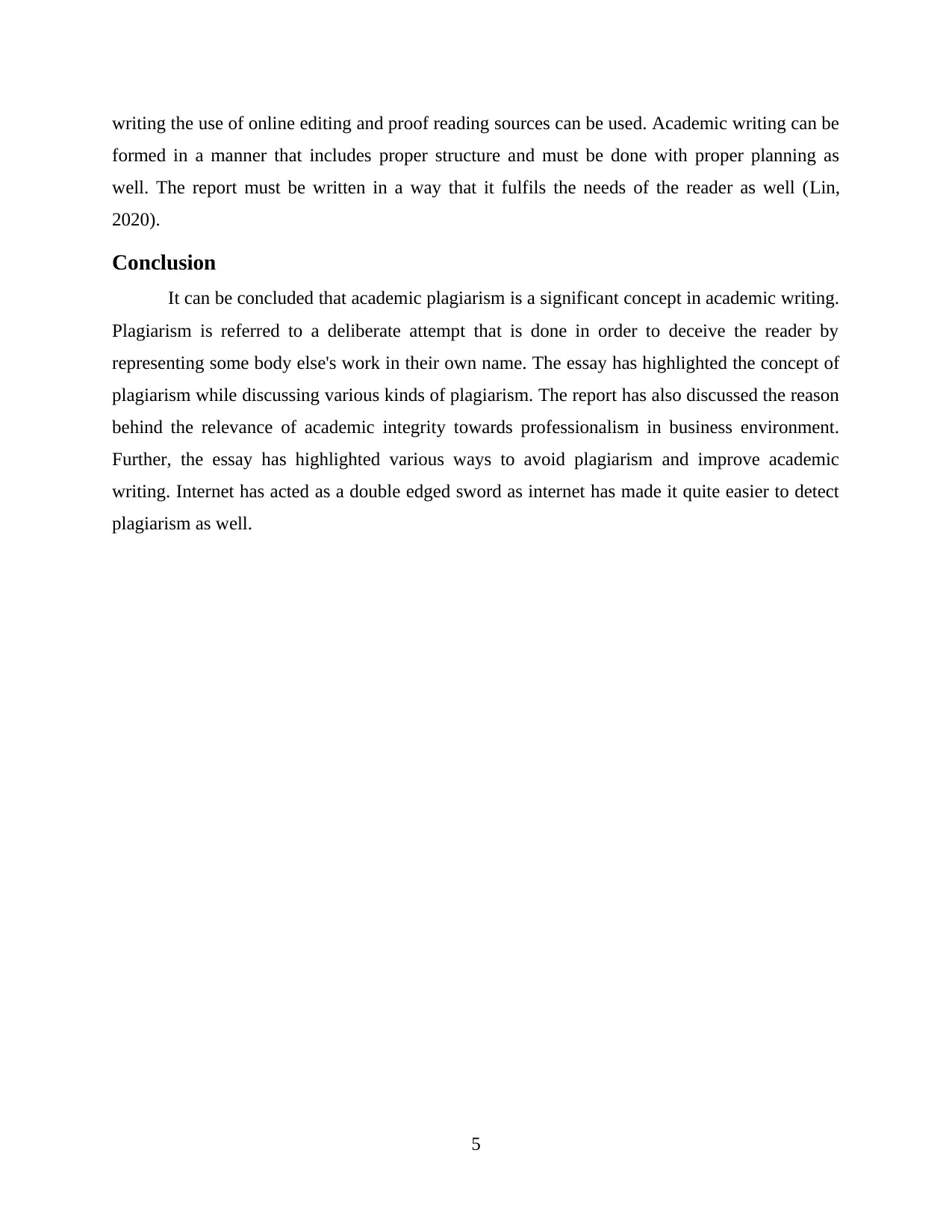
writing the use of online editing and proof reading sources can be used. Academic writing can be
formed in a manner that includes proper structure and must be done with proper planning as
well. The report must be written in a way that it fulfils the needs of the reader as well (Lin,
2020).
Conclusion
It can be concluded that academic plagiarism is a significant concept in academic writing.
Plagiarism is referred to a deliberate attempt that is done in order to deceive the reader by
representing some body else's work in their own name. The essay has highlighted the concept of
plagiarism while discussing various kinds of plagiarism. The report has also discussed the reason
behind the relevance of academic integrity towards professionalism in business environment.
Further, the essay has highlighted various ways to avoid plagiarism and improve academic
writing. Internet has acted as a double edged sword as internet has made it quite easier to detect
plagiarism as well.
5
formed in a manner that includes proper structure and must be done with proper planning as
well. The report must be written in a way that it fulfils the needs of the reader as well (Lin,
2020).
Conclusion
It can be concluded that academic plagiarism is a significant concept in academic writing.
Plagiarism is referred to a deliberate attempt that is done in order to deceive the reader by
representing some body else's work in their own name. The essay has highlighted the concept of
plagiarism while discussing various kinds of plagiarism. The report has also discussed the reason
behind the relevance of academic integrity towards professionalism in business environment.
Further, the essay has highlighted various ways to avoid plagiarism and improve academic
writing. Internet has acted as a double edged sword as internet has made it quite easier to detect
plagiarism as well.
5
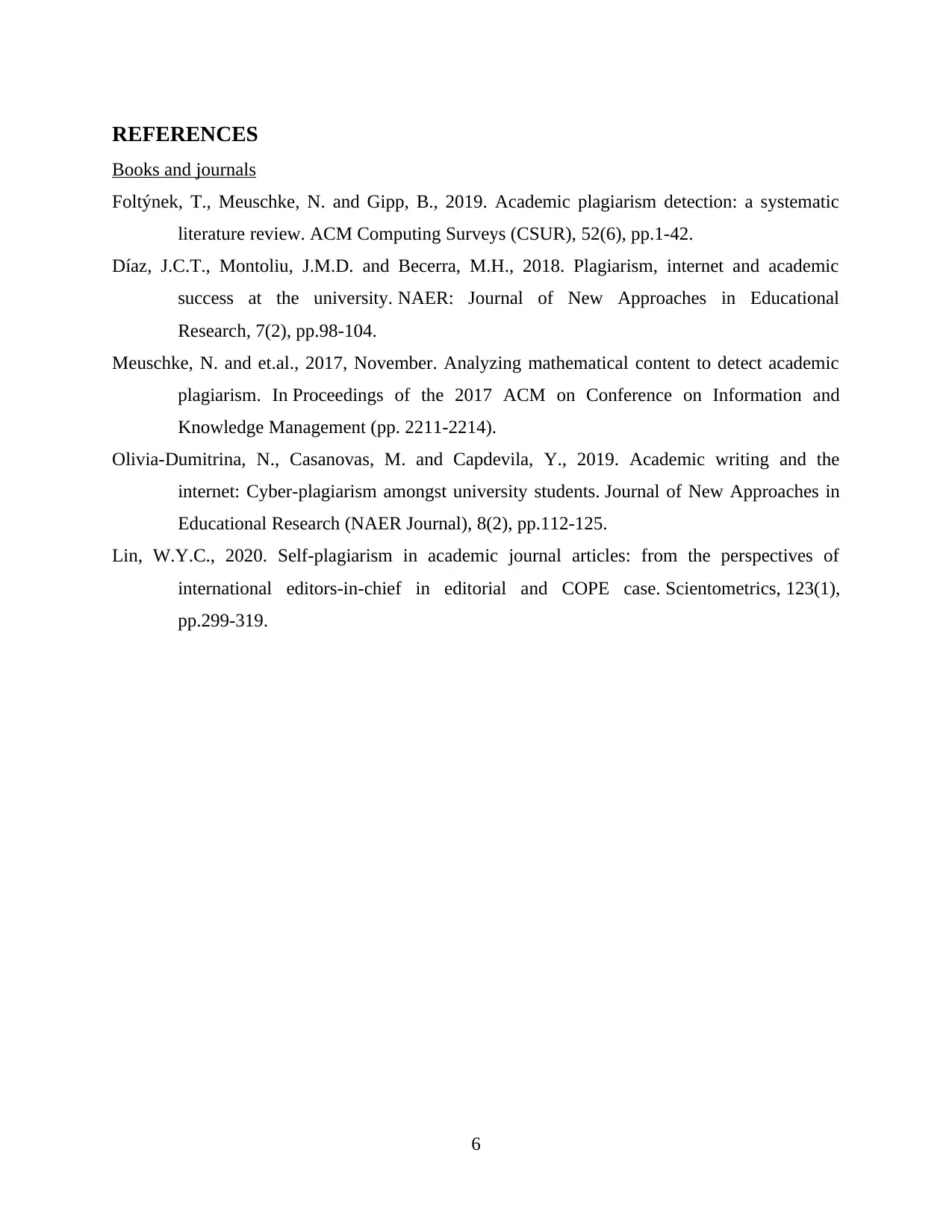
REFERENCES
Books and journals
Foltýnek, T., Meuschke, N. and Gipp, B., 2019. Academic plagiarism detection: a systematic
literature review. ACM Computing Surveys (CSUR), 52(6), pp.1-42.
Díaz, J.C.T., Montoliu, J.M.D. and Becerra, M.H., 2018. Plagiarism, internet and academic
success at the university. NAER: Journal of New Approaches in Educational
Research, 7(2), pp.98-104.
Meuschke, N. and et.al., 2017, November. Analyzing mathematical content to detect academic
plagiarism. In Proceedings of the 2017 ACM on Conference on Information and
Knowledge Management (pp. 2211-2214).
Olivia-Dumitrina, N., Casanovas, M. and Capdevila, Y., 2019. Academic writing and the
internet: Cyber-plagiarism amongst university students. Journal of New Approaches in
Educational Research (NAER Journal), 8(2), pp.112-125.
Lin, W.Y.C., 2020. Self-plagiarism in academic journal articles: from the perspectives of
international editors-in-chief in editorial and COPE case. Scientometrics, 123(1),
pp.299-319.
6
Books and journals
Foltýnek, T., Meuschke, N. and Gipp, B., 2019. Academic plagiarism detection: a systematic
literature review. ACM Computing Surveys (CSUR), 52(6), pp.1-42.
Díaz, J.C.T., Montoliu, J.M.D. and Becerra, M.H., 2018. Plagiarism, internet and academic
success at the university. NAER: Journal of New Approaches in Educational
Research, 7(2), pp.98-104.
Meuschke, N. and et.al., 2017, November. Analyzing mathematical content to detect academic
plagiarism. In Proceedings of the 2017 ACM on Conference on Information and
Knowledge Management (pp. 2211-2214).
Olivia-Dumitrina, N., Casanovas, M. and Capdevila, Y., 2019. Academic writing and the
internet: Cyber-plagiarism amongst university students. Journal of New Approaches in
Educational Research (NAER Journal), 8(2), pp.112-125.
Lin, W.Y.C., 2020. Self-plagiarism in academic journal articles: from the perspectives of
international editors-in-chief in editorial and COPE case. Scientometrics, 123(1),
pp.299-319.
6
⊘ This is a preview!⊘
Do you want full access?
Subscribe today to unlock all pages.

Trusted by 1+ million students worldwide
1 out of 6
Related Documents
Your All-in-One AI-Powered Toolkit for Academic Success.
+13062052269
info@desklib.com
Available 24*7 on WhatsApp / Email
![[object Object]](/_next/static/media/star-bottom.7253800d.svg)
Unlock your academic potential
Copyright © 2020–2026 A2Z Services. All Rights Reserved. Developed and managed by ZUCOL.





